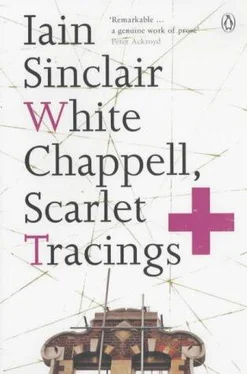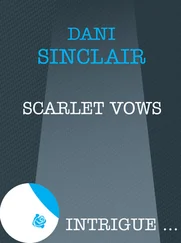Well, to call your book a dabbling with demons would be to relegate the poetic process to a nothing: I’m only interested in this central question: can the poetry effect the resolution of good and evil into the coincidence of contraries?
We live a news story and enter its present state effected by event and mood: a phantasmic world does arise, is appropriate and exact, is even phenomenal for us, rather as a ghost would be. Here, there’s a crucial difference between bad poets and good. Any fool can know about these things by reading about them; any fool can construct surrealistic or fantastic visions and, having worked them out, can even see them. But the good poet, working in such fields of knowing, doesn’t necessarily ‘want’ to see what he sees; he just sees it, impelled necessarily upon him by circumstance and mood and by his trust in those, his willingness to speak whether gripped by horrors or by beatitudes or by some kind of shining common-sense. I wish I knew what it was exactly that tells us the difference between the man or woman impelled by such necessities to speech and the second-rater impelled by more wary ambitions. But the language has an urgency and somewhat a dread, as has yours here; and there’s no mistaking it.
A preliminary positive for me, therefore: I’m not at all sure there wasn’t something prurient, wilful, not to say undesirable about certain choices you made before and probably during the writing (why become involved with these matters before the poetry began working?); but, once engaged, you evidently saw many things in the phantasmic world, or at least your language came into the light from sources close-bound in that darkness. There is, simply, no mistaking it, as I say.
That is, a phantasm world, with its pairings and opposites, did come ‘to life’ and I mean that well-nigh literally: so we have to live with it.
Let’s take the Bradys, though. They have always exemplified for me what I often noted during my own journalism: what appears in headlines as ‘evil’ is also usually banal and depressing.
Your imaginative/poetic vision has called up, summoned, these phantasms, arising from these crimes, but cast them into an astral world where they have another sort of existence. Eliphas Levi was fond of the thought that great evil demands as grand a soul as does great good. I disagree. On the visionary level it is perhaps true because the quality of the vision elevates what it deals with. At certain points of the ‘dialectic’ it is perhaps also true: fear can call for a ‘grand soul’ to overcome it. Also, seen in a vision of a coincidence of contraries, as though succeeding a war in the heavens, it may again seem true. Yet, still I disagree: my own experience of good and evil is that the former ennobles and the latter diminishes the perpetrator in stature. And I put it to myself that the reason is, in a sense, dialectical: in their ‘fall’ from the visionary ontology into the human action it is the nature of evil to limit and depress and disgust — to be small-minded and furious — and it is the nature of good, in its fall, to enlarge and make sunny and bring wider acceptance. Cosmologically, it’s the nature of ‘evil’ (now we have to quote it) to be small and furious like an atom-power release, and of good to expand ‘in love’ as the neo-Platonists used to say. We cannot deny the universality of dark/light: our poetics must have that ontology. But we have no referent for value unless our ontology works towards the good — takes that as direction. (And I haven’t said yours doesn’t, mark you.)
We do need to explore the cosmology on its dark side, to make our vision unflinching and accurate; so I have no patience with those who, in our own time, would make poetry a bland thing, apparently limited to the pretence of good feeling. But we also need to see that the allure of the cruel is a false allure: that it only holds as grand when seen in its transcendental form (for in transcendence, in their ‘eternal’ phantasm all things look grand, good and evil, though our joy and fear tell us so immediately the difference). The more evil becomes precise, personalised and located, however, the more it belittles itself: Brady and Hindley listening to those appalling tape recordings (such a small bestiality); Gilles de Rais fondling children (such a stupid cruelty); a murder case I covered once where a pathetic accused deposed that he stepped into a chamberpot beneath the bed on his way to strangle his mistress; the affinity of the Belsen pictures with the rubbish dump; the cruel schoolboy in Amin or in the Krays; the fact that the schizoid is, in a sense, a smaller psyche. All this compared with the grandeur of any small act of kindness in a concentration camp. It is, of course, what Iris Murdoch calls ‘The Sovereignty of Good’, and I believe that the phenomenology, so to speak, of good and evil, in their declension from angel/demon transcendent phantasms, separates into the much-in-little and little-in-much. Great evil is a grand conception by our common terms: that is its allure.
In act, it is the implosion into nothing whereas good is the simultaneous fructification of nothing. They are utterly interdependent dynamically and yet good is the sovereign just as ‘all we have’ is sovereign over ‘all that we shall not have’. Unless there is the gradient of value — unless the very coincidence of contraries in the Blakeian sense has itself this gradient, as I think Blake saw — I can explain neither our actions nor our words.
For me, there’s another consequence. Out of transcendence what we first create is the phantasm of self, so that we may at all see. I’m hostile to all literatures which, in Foucault-like confidence, think there’s a standing from which the self-phantasm can disappear. I can’t think of such a standing outside mental illness, and though it’s possible to pretend (by various tricks ) a literature which transcends the question I cannot think it would be curative. That is, the self phantasm must be fully awakened into more universal dynamic but the law is that in all higher awareness the lower forms of awareness persist: they are simultaneously present with the higher awareness. That is why I was so pleased to see in your text this recognition that the self and its phantasmic forms and ghosts must be recognised before the self-as-self-healing or self-‘disappearing’ can enter the simultaneity of true knowing.
I may have seemed to be writing off the point, but your own kindly dedication to me — ‘fold the bridge, the cave appears in the middle’ — convinces me that I’m very near the point: that your faith remains in the process as curative.
I shall say, therefore, that grand evil is macro-petty because, when we have transcendental visions of it, it scares us stiff into smallness and protection of the self. It is also petty, because, seeing the coincidence of good and evil in the true dynamic, it rejects the coincidence (which is, I think , joyful) and chooses instead the obviously worse of the alternatives. Dante is the man who, above all, saw that; Milton wanted to but did not see it. We cannot fail to choose because, short of being gods, we must otherwise vegetate. Only by choosing the good, because it is expansive, can we begin to accept the dynamic in its duality and yet make a choice. It more truly reflects life process to see that it is creative than that it’s destructive at least while time’s arrow points in the direction it does and our universe expands: for if evil were sovereign nothing would exist.
Finally, though, I question a sort of sucking-in towards evil in the text: so important to us is that question: how firmly can we build the wall? The truth of such transcendent knowings seems to come into the consciousness of very few (but it is unconsciously known by the many): with all conscious knowing comes an extra charge of responsibility. By the gods! we need so hard to trust the process and not ourselves.
Читать дальше












